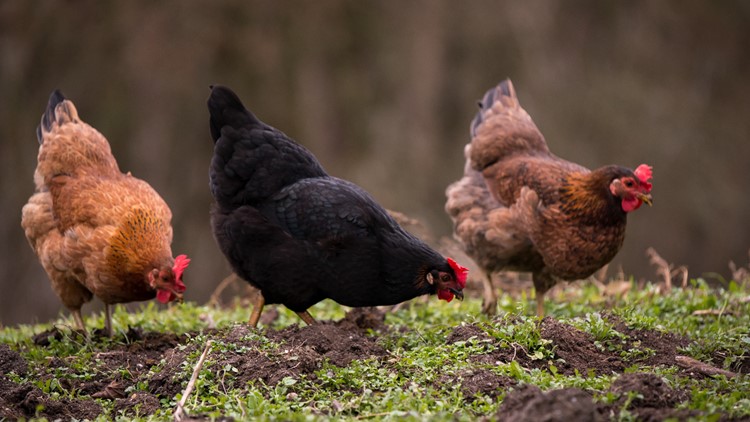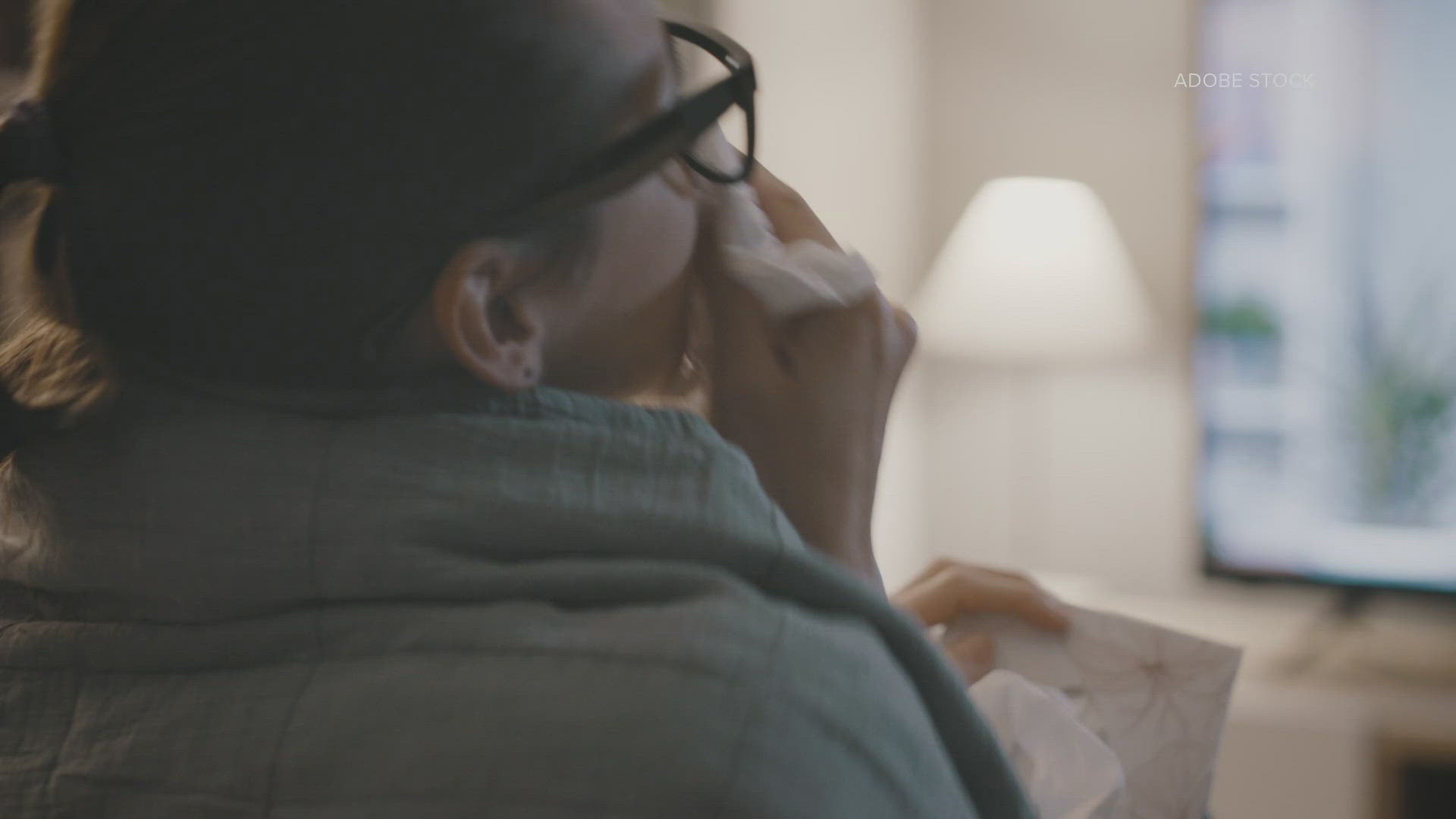SEATTLE — The Washington State Department of Health said it is investigating 13 cases of Salmonella linked to backyard poultry.
The cases are part of a nationwide outbreak that has sickened 104 people in 31 states. The Washington cases have been reported in Kitsap, Spokane, Yakima, King, Grant, Thurston, Skagit and Cowlitz counties. Four people have been hospitalized in the state and no deaths have been reported.
“If you have a backyard flock, take steps to protect yourself and your family from Salmonella infection,” said Tao Sheng Kwan-Gett, Washington state chief science officer, MD, MPH. “Always wash your hands with soap and water after you've touched poultry, or soil or objects they’ve had contact with.”
Salmonella bacteria can be found in poultry manure and can make people sick, according to the Washington State Department of Health. The bacteria can easily spread to cages. coops, hay, plants and soil where the poultry lives. Salmonella can make you sick if you touch your mouth or food with unwashed hands.
The CDC estimates that Salmonella causes approximately 1.35 million infections and 26,500 hospitalizations in the United States every year.
According to the Washington State Department of Health, symptoms typically appear one to three days after exposure and can include:
- Diarrhea that can be bloody
- Fever
- Chills
- Abdominal discomfort
- Occasional vomiting
Symptoms can last four to seven days and usually resolve on their own with fluids and rest. Children younger than five years, adults 65 years and older, and people with weakened immune systems may experience more severe illnesses that require medical treatment or hospitalization.
To avoid infection and protect your flock, follow these prevention steps:
- Wash your hands with soap and running water after touching backyard poultry or anything where they live and roam
- Don’t kiss or snuggle poultry
- Don't eat or drink around your poultry
- Keep poultry and the supplies you use to care for them outside of your home
- Supervise children around birds; children younger than five should not touch birds
- Separate your flock from wildlife
- Practice good biosecurity



